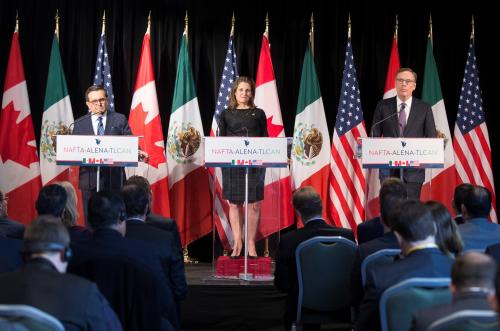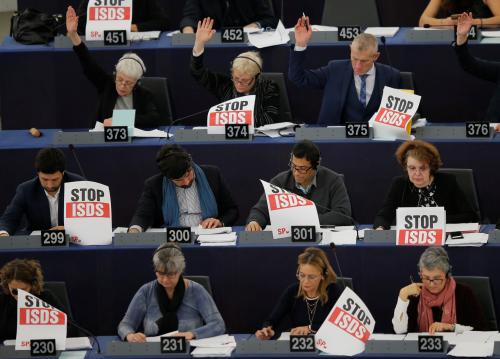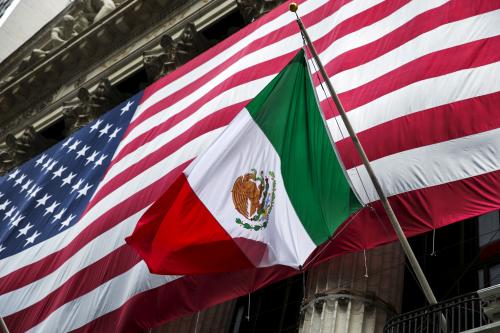President Donald Trump has promised to renegotiate the North American Free Trade Agreement (NAFTA), which links the United States with two of its largest trading partners, Canada and Mexico. Officials in both Canada and Mexico have signaled they are open to renegotiations, and talks are expected to begin soon. New commerce secretary Wilbur Ross has indicated he hopes the negotiations could be completed within a year.
While NAFTA is known primarily as a trade agreement, it also includes important rules and regulations for governing cross-border investment between the three countries. NAFTA’s Chapter 11 guarantees investors from any of the three countries several substantive protections for their foreign operations located in a treaty partner, including the right to “fair and equitable treatment,” the ability to transfer profits abroad, and the right to compensation in the event of direct or indirect expropriation (including potentially through regulatory changes). Notably, Chapter 11 also empowers foreign investors to enforce these rights via investor-state dispute settlement (ISDS), a legal mechanism that allows companies to file claims directly against sovereign governments. These cases are heard by private arbitrators, who can issue substantial monetary awards enforceable in almost any country around the world. To date there have been 59 such cases filed under NAFTA: 16 against the U.S., 25 against Canada, and 18 against Mexico. While the U.S. has so far never lost an ISDS case, both Canada and Mexico have lost several, requiring payments to investors of over $100 million.
At this point it is unclear which aspects of NAFTA Trump would like to change, or what requests, if any, Canada and Mexico may bring to the negotiations. Yet there are reasons why all three treaty partners may want to revisit the investor protections included in Chapter 11. In recent years ISDS has become increasingly controversial, as governments have faced a growing number of adventurous legal claims from foreign investors. Investor claims have challenged government policies on issues from mining licenses to the privatization of healthcare to subsidies for nuclear energy. Meanwhile civil society and nongovernmental organizations have sharply criticized the premise of investor-state arbitration, and even pro-globalization advocates such as The Economist have raised serious questions about its merits. Partially as a response to these mounting arbitration cases and public backlash, countries around the world have begun experimenting with new models for governing international investment. The renegotiation of NAFTA presents an opportunity to assess some of these new models and consider how they might apply to the North American context.
This brief sketches four broad options for the future of investment protection in NAFTA:
- Upgrading the treaty’s investment chapter while leaving the main substantive and procedural aspects of investment protection in place.
- Abandoning legalized treaty-based investment protections, leaving any provisions on investment not directly legally enforceable.
- Shifting from an investor-state framework to a state-state framework, in which states would be responsible for legal enforcement of investment regulations.
- Linking NAFTA to the recently proposed multilateral investment court.
The purpose of this brief is not necessarily to advocate for any one of these options over the others, but rather to identify some of the key advantages and drawbacks of each and to encourage a broader debate on the future of investment protection policy. Any renegotiation of NAFTA creates an opportunity to reassess foundational assumptions and arguments on investment protection. While a rich debate surrounding ISDS has arisen in many countries around the world, in the U.S. this discussion has lagged. As a result, investment policy reform in the U.S. has proceeded slowly, while other countries have pushed forward with bold changes.
Trump’s insistence on renegotiating NAFTA, however, is an opening to consider more creative and ambitious proposals. Trump has demonstrated a willingness, in fact even a preference, for questioning the orthodoxy and conventional wisdom of international economic policy. Nowhere is such questioning more needed than in the realm of international investment policy. This brief helps set the stage for such a discussion.







